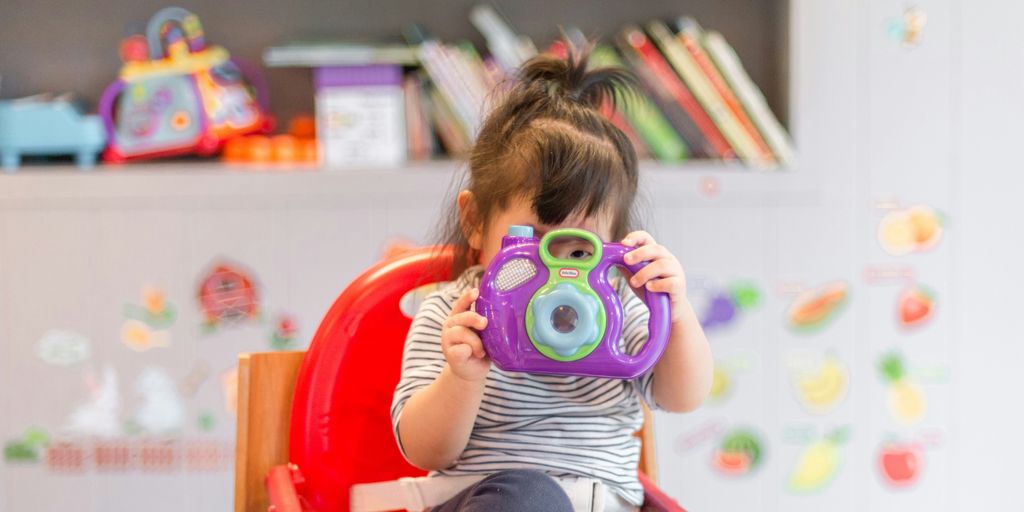
Parental guidance is crucial for a child’s growth and development. It helps shape their emotional, social, and academic skills. This article explores the various aspects and benefits of parental guidance, offering insights into effective strategies and common challenges.
Key Takeaways
- Parental guidance is essential in shaping a child’s emotional, social, and academic development.
- Effective parental guidance involves setting clear expectations and boundaries, using positive reinforcement, and modeling desired behaviors.
- Challenges in parental guidance include dealing with resistance, adapting to individual needs, and maintaining consistency.
- Parental involvement in education significantly boosts a child’s academic success and reduces absenteeism.
- Long-term benefits of parental guidance include developing self-responsibility, preparing for adulthood, and building strong parent-child relationships.
Understanding the Role of Parental Guidance in Child Development
Defining Parental Guidance
Parental guidance is the support and direction parents provide to help their children grow and develop. Effective parents observe and understand their child’s unique traits and nurture their strengths. This guidance is not about controlling but about walking beside them, showing the way.
Historical Perspectives on Parental Influence
In the past, the role of parents was often seen as one-dimensional, focusing on discipline or affection. However, new research suggests that the day-to-day decisions made by parents play a significant role in shaping a child’s future. This model helps resolve the nature-nurture debate by emphasizing the importance of parental guidance.
Modern Theories of Child Development
Modern theories highlight that parental guidance is multi-faceted and complex. Parents initiate developmental paths based on their child’s abilities and interests. They create a supportive environment that fosters growth and learning. This approach is crucial for developing a child’s sense of morality and responsibility.
Parental guidance is key. It starts children on the path to developing their own sense of morality and responsibility. As you guide and direct your children, remember this principle: "Children learn by doing, not by having parents do for them."
Understanding the role of parental guidance in child development is essential for fostering a child’s emotional, social, and academic growth.
The Impact of Parental Guidance on Emotional and Social Growth
Building Emotional Intelligence
Parental guidance plays a crucial role in helping children develop emotional intelligence. By demonstrating healthy emotional expression, empathy, and problem-solving, parents can teach children valuable emotional skills through observation and practice. Children learn to manage their emotions better when they see their parents doing the same. This helps them navigate social situations and build stronger relationships.
Fostering Social Skills
Parents are instrumental in fostering social skills in their children. Through activities like playdates, family gatherings, and community events, children learn how to interact with others. Modeling appropriate social behavior is key. When parents show respect, kindness, and good communication, children are more likely to mimic these behaviors. Research shows that SEL is more effective when parents and guardians model the same skills and behaviors that students are mastering in the classroom.
Encouraging Empathy and Compassion
Empathy and compassion are essential traits that can be nurtured through parental guidance. Parents can encourage these qualities by teaching their children to consider others’ feelings and perspectives. Simple acts like discussing emotions and validating a child’s feelings can go a long way. When children understand and share the feelings of others, they are more likely to develop into compassionate adults.
Parental guidance is not just about setting rules; it’s about walking alongside your child and showing them the way. This approach helps children develop a strong sense of empathy and social responsibility.
Parental Guidance and Academic Success
Creating a Supportive Learning Environment
A supportive home environment is crucial for a child’s academic success. Parents should aim to create a space that is free from distractions and conducive to learning. This means setting up a quiet area for study, minimizing noise, and ensuring that the child has all the necessary materials. A well-structured home environment can significantly boost a child’s focus and productivity.
The Role of Parental Involvement in Education
Parental involvement in education is essential for student achievement. Engaging with your child’s school activities, attending parent-teacher meetings, and keeping track of their academic progress can make a big difference. Active participation helps in gaining more respect for the teaching profession and improving communication among educators, parents, and administrators. This involvement also enhances the community’s opinion of the school.
Balancing Guidance and Independence
While it’s important to guide your child, it’s equally crucial to allow them some independence. Over-involvement can sometimes be counterproductive, leading to issues with self-regulation and delayed gratification. Striking a balance between providing guidance and allowing independence helps children develop essential life skills. This balance is key to fostering a sense of responsibility and accountability in students.
Consistent parental involvement and a supportive home environment are pivotal for a child’s academic success. However, it’s equally important to balance guidance with independence to help children develop self-regulation and accountability.
Effective Strategies for Providing Parental Guidance
Setting Clear Expectations and Boundaries
One of the most important strategies for guiding children is to set clear expectations and boundaries. Children need to know what is expected of them and the consequences if they don’t follow the rules. Discuss family rules in advance and involve your children in setting these rules. This way, they are more likely to follow them.
Positive Reinforcement and Discipline
Encouraging good behavior with positive reinforcement is more effective than punishment. Rewarding good behavior with extra privileges or surprises can motivate children better. For example, if your child has worked hard on chores, you could say, "You’re such a good worker! Why don’t we go out for ice cream when you’re done?" This approach helps in encouraging positive child behavior.
Modeling Desired Behaviors
Children learn a lot by observing their parents. Be a role model and use your own behavior to guide your child. If you want your child to be kind and respectful, show kindness and respect in your actions. Physical affection, such as hugs, kisses, and cuddles, plays a crucial role in a child’s emotional well-being and can help reinforce positive behavior.
Effective parental guidance involves walking beside your children, showing them the way, rather than doing everything for them. This helps them develop their own sense of responsibility and morality.
Challenges and Solutions in Parental Guidance
Dealing with Resistance and Rebellion
One of the toughest parts of parenting is handling resistance and rebellion. Children often push back against rules and boundaries as they grow. To navigate this, parents can:
- Stay calm and patient.
- Listen to their child’s concerns.
- Explain the reasons behind rules.
Adapting Guidance to Individual Needs
Every child is unique, and what works for one might not work for another. It’s important to adapt your approach to fit each child’s personality and maturity level. This might mean:
- Setting different expectations for each child.
- Being flexible with rules and consequences.
- Encouraging each child’s strengths.
Maintaining Consistency and Patience
Consistency is key in effective parenting. Children need to know what to expect. However, maintaining this can be challenging. Parents should:
- Stick to established rules and consequences.
- Be patient, even when it’s tough.
- Reinforce positive behavior regularly.
Navigating the challenges of modern parenting with patience and consistency can empower your parenting journey today!
The Long-term Benefits of Parental Guidance

Developing Self-Responsibility and Morality
Parental guidance is crucial in helping children develop a sense of self-responsibility and morality. By setting clear expectations and consistently enforcing rules, parents teach their children the importance of accountability. This process helps children understand the consequences of their actions and encourages them to make better choices in the future.
Effective parents are those who guide their children by creating a "safety net" of appropriate limits and positive reinforcement. This approach helps children develop an internal sense of right and wrong, which is essential for their overall growth.
Preparing for Adulthood
Guidance from parents plays a significant role in preparing children for adulthood. By providing support and encouragement, parents help their children develop the skills needed to navigate the challenges of adult life. This includes teaching them how to manage their time, set goals, and make informed decisions.
Children who receive proper guidance are more likely to become independent and self-sufficient adults. They learn to balance independence with responsibility, which is essential for their success in the real world.
Building Strong Parent-Child Relationships
A strong parent-child relationship is built on trust, communication, and mutual respect. Parental guidance fosters these qualities by creating an environment where children feel safe and supported. When parents take the time to listen to their children and involve them in decision-making, it strengthens their bond and promotes a healthy relationship.
Children who have strong relationships with their parents are more likely to develop good social skills and emotional health. They feel valued and understood, which boosts their self-esteem and confidence.
In conclusion, the long-term benefits of parental guidance are vast and far-reaching. By providing consistent support and setting clear expectations, parents can help their children develop into responsible, moral, and well-adjusted adults.
Conclusion
In conclusion, parental guidance is a cornerstone in a child’s development. It shapes their morals, behavior, and overall growth. By setting clear rules, encouraging good behavior, and being involved in their lives, parents can guide their children towards positive paths. Remember, it’s not about controlling but guiding them to make good choices. Every bit of effort counts and can make a huge difference in their future.
Frequently Asked Questions
What is parental guidance?
Parental guidance is when parents help their children grow and learn by setting rules, giving advice, and supporting them in their daily lives.
Why is parental guidance important in child development?
Parental guidance is important because it helps children learn right from wrong, develop social skills, and build emotional intelligence.
How does parental guidance affect a child’s emotional growth?
Parental guidance helps children understand and manage their emotions, leading to better emotional health and relationships.
Can too much parental guidance be harmful?
Yes, too much parental guidance can make children feel controlled and limit their ability to make decisions on their own.
What are some effective strategies for providing parental guidance?
Effective strategies include setting clear rules, using positive reinforcement, and modeling good behavior.
How can parents balance guidance and independence?
Parents can balance guidance and independence by giving their children choices and encouraging them to make their own decisions while providing support and advice.






